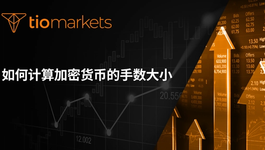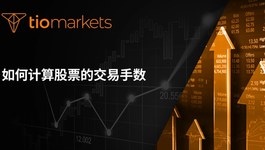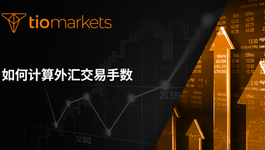Are You Revenge Trading and You Don’t Even Know it?
BY TIOmarkets
|11 18, 2024Revenge trading is a destructive pattern of behavior where traders make impulsive and emotionally-driven decisions in an attempt to recoup previous losses. It occurs when a trader experiences a loss and becomes consumed by the desire to immediately "get back" at the market, often leading to further losses and a downward spiral.
Common scenarios that trigger revenge trading include experiencing a significant loss due to a poorly executed trade, being stopped out of a position, or missing out on a profitable opportunity. The psychological triggers behind revenge trading are rooted in emotions like anger, frustration, and a sense of injustice towards the market.
Traders engaging in revenge trading tend to abandon their well-defined trading strategies and risk management principles, instead making trades based on pure emotion. This emotional state clouds their judgment and leads to irrational decision-making, such as increasing position sizes recklessly, disregarding stop-loss orders, or chasing trades without proper analysis.
Consequences of Revenge Trading
Revenge trading can have severe and far-reaching consequences that extend beyond the immediate financial impact. At its core, this emotional trading behavior leads to a vicious cycle of poor decision-making, further losses, and a deterioration of overall trading performance.
One of the most apparent consequences of revenge trading is the potential for significant financial losses. When traders act impulsively and without a well-defined strategy, they are more likely to make trades based on emotion rather than sound analysis. This can result in entering positions at unfavorable prices, holding onto losing trades for too long, or even doubling down on losing positions in an attempt to recoup losses quickly. Ultimately, these emotionally-driven decisions can rapidly erode trading capital, making it increasingly difficult to recover from setbacks.
Moreover, revenge trading often leads to increased stress and emotional burnout. The constant cycle of chasing losses, with the frustration of making poor trading decisions, can take a toll on a trader's mental and emotional well-being. This heightened stress can further impair judgment and decision-making abilities, making the problem worse and leading to a downward spiral of poor performance.
In addition to the immediate financial and emotional consequences, revenge trading can have a lasting negative impact on a trader's long-term performance. By consistently making trades based on emotions rather than a well-defined strategy, traders may develop bad habits and reinforce detrimental behaviors. This can lead to a lack of consistency in their trading approach, making it difficult to achieve sustainable profitability over time.
Recognizing the Signs of Revenge Trading
Signs of emotional cues suggesting revenge trading tendencies can appear in different forms. One common sign is:
Trading based on emotion
Traders may feel an overwhelming urge to recoup their losses immediately, leading to impulsive and reckless decision-making. Additionally, feelings of regret, resentment, or even a desire for vengeance against the market can cloud rational judgment.
Deviating from your trading plan
Behavioral patterns are another telltale sign of revenge trading. Traders may start deviating from their established trading plan, increasing position sizes or taking on excessive risk in an attempt to recover losses quickly. They may also exhibit a tendency to disregard risk management principles, such as ignoring stop-loss orders or holding onto losing positions for too long, hoping for a miraculous turnaround.
Real-life examples of revenge trading can be found across various market environments. For instance, a trader who experienced a significant loss due to a sudden market reversal may feel compelled to immediately enter a trade in the opposite direction, without proper analysis or a well-defined strategy. This impulsive action, fueled by emotions, can lead to further losses and exacerbate the situation.
Another example could be a trader who, after a series of losing trades, decides to increase their position size substantially in an attempt to "make it all back" in a single trade, disregarding their risk management rules and exposing themselves to potentially catastrophic losses.
The Psychology Behind Revenge Trading
Revenge trading is deeply rooted in the psychological makeup of traders. It is often fueled by a combination of cognitive biases, intense emotions, and the fear of losing money. Understanding these psychological factors is crucial in overcoming revenge trading tendencies.
Cognitive biases play a significant role in shaping our decision-making processes, and traders are not immune to their influence.
One such bias is the "sunk cost fallacy," which refers to the tendency to continue investing time, money, or effort into a losing endeavor because of the resources already invested. In the context of trading, this bias can lead traders to hold onto losing positions for too long or double down on losing trades in an attempt to recoup their losses.
Another cognitive bias that contributes to revenge trading is "loss aversion." This bias describes the human tendency to feel the pain of losses more acutely than the pleasure of gains. As a result, traders may become overly focused on recovering their losses, leading them to make impulsive and emotionally charged trading decisions.
Emotions like anger, frustration, and fear also play a significant role in revenge trading. When traders experience losses, they may feel a sense of anger or frustration directed at the market, themselves, or even their trading strategy. These intense emotions can cloud their judgment and lead to hasty decisions driven by the desire for retaliation or revenge against the market.
Loss aversion is another psychological factor that contributes to revenge trading. The fear of incurring further losses can drive traders to take excessive risks in an attempt to recover their previous losses quickly. This behavior often leads to a vicious cycle of chasing losses, resulting in even greater financial and emotional setbacks.
Strategies to Avoid Revenge Trading
Set realistic trading goals and expectations
Setting realistic trading goals and expectations is crucial to avoid the pitfalls of revenge trading. Many traders fall into this trap due to unrealistic expectations, such as aiming for consistent daily profits or setting overly ambitious targets. Instead, it's essential to approach trading with a long-term mindset, acknowledging that losses are an inevitable part of the journey. By setting achievable goals aligned with your risk tolerance and trading style,you can keep a balanced mindset and avoid the emotional stress that often triggers trading for revenge.
Create a trading plan and stick to it
Developing a solid trading plan with clear rules is another effective strategy to combat revenge trading tendencies. A well-defined trading plan acts as a roadmap, guiding your decision-making process and helping you stay disciplined even in the face of losses or emotional turmoil. Your trading plan should outline entry and exit criteria, risk management strategies, and specific rules for managing trades. By adhering to this plan, you can remove the impulsive and emotional decision-making that often leads to revenge trading.
Keep a trading journal
Maintaining a trading journal is an invaluable tool for self-reflection and learning from your experiences. A trading journal allows you to document your trades, including the rationale behind your decisions, the emotions you experienced, and the outcomes. By regularly reviewing your journal, you can identify patterns, analyze your mistakes, and gain valuable insights into your trading behavior. This self-awareness can help you recognize the triggers that lead to revenge trading and develop strategies to address them effectively.
Build emotional resilience
Developing emotional resilience is crucial for traders to navigate the tumultuous world of financial markets. Stress and emotional turmoil can cloud our judgment and lead to poor decision-making, making it essential to cultivate strategies for managing our mental well-being.
One effective technique for stress management is practicing mindfulness and meditation. These practices can help you become more present, aware of your thoughts and emotions, and better equipped to respond to stressful situations with clarity and composure. By taking a few minutes each day to focus on your breath and quiet your mind, you can cultivate a sense of calm and clarity that will serve you well in your trading endeavors.
Remember, emotional resilience is not about eliminating emotions altogether but rather about developing the ability to recognize and manage them effectively.
Accept trading losses
Losses are an inevitable part of trading, but how you respond to them can make a significant difference in your long-term success. Instead of falling into the trap of revenge trading, it's crucial to approach losses with a growth mindset and a willingness to learn from your mistakes.
Take the time to review your trades, identify the factors that contributed to the loss, and understand what went wrong. Was it a lack of proper risk management? Did you let emotions influence your decision-making? Did you misinterpret the market signals? By conducting a thorough analysis, you can gain valuable insights into your trading behavior and decision-making process.
Once you've identified the areas that need improvement, turn those losses into valuable trading lessons. Document your findings in your trading journal, create a plan to address the weaknesses, and implement strategies to prevent similar mistakes from occurring in the future. This could involve refining your trading strategy, adjusting your risk management approach, or working on your emotional control.
Automate your trading strategy
Trading in today's fast-paced markets can be emotionally draining, and the temptation to engage in revenge trading can be strong. However, leveraging technology can be a powerful ally in managing emotions and avoiding impulsive decisions.
One effective way to manage emotions is to incorporate automated trading systems into your strategy. These systems execute trades based on predefined rules and algorithms, eliminating the emotional biases that can lead to revenge trading. By removing the human element from trade execution, automated trading systems can help you stick to your trading plan and avoid impulsive decisions driven by anger or frustration.
It's important to note that while technology can be a valuable tool in managing emotions, it should not be viewed as a complete solution. Traders should still cultivate emotional resilience and develop strategies for managing stress and emotions through techniques like mindfulness and meditation. By combining the power of technology with personal growth and self-awareness, traders can create a well-rounded approach to overcoming the pitfalls of revenge trading.
The conclusion
Revenge trading is a self-destructive cycle that can jeopardize both a trader's capital and long-term success. By understanding the psychological roots and behavioral signs of revenge trading, traders can adopt strategies to prevent emotional trading mistakes. Setting realistic goals, following a disciplined trading plan, keeping a journal, and building emotional resilience are essential steps in breaking the cycle.
Moreover, leveraging technology and establishing a support system can provide additional safeguards. Through self-awareness, a commitment to continuous improvement, and careful risk management, traders can cultivate a balanced mindset that prioritizes consistency over impulsive reactions. With these tools, traders can navigate losses constructively, ultimately leading to a more stable and profitable trading journey.
Are you ready to get started?
Register an account today and begin participating in the world’s largest and most liquid market.

Risk disclaimer: CFDs are complex instruments and come with a high risk of losing money rapidly due to leverage. You should consider whether you understand how CFDs work and whether you can afford to take the high risk of losing your money. Never deposit more than you are prepared to lose. Professional client’s losses can exceed their deposit. Please see our risk warning policy and seek independent professional advice if you do not fully understand. This information is not directed or intended for distribution to or use by residents of certain countries/jurisdictions including, but not limited to, USA & Countries included in the OFAC sanction list. The Company holds the right to alter the aforementioned list of countries at its own discretion.
TIOmarkets offers an exclusively execution-only service. The views expressed are for information purposes only. None of the content provided constitutes any form of investment advice. The comments are made available purely for educational and marketing purposes and do NOT constitute advice or investment recommendation (and should not be considered as such) and do not in any way constitute an invitation to acquire any financial instrument or product. TIOmarkets and its affiliates and consultants are not liable for any damages that may be caused by individual comments or statements by TIOmarkets analysis and assumes no liability with respect to the completeness and correctness of the content presented. The investor is solely responsible for the risk of his/her investment decisions. The analyses and comments presented do not include any consideration of your personal investment objectives, financial circumstances, or needs. The content has not been prepared in accordance with any legal requirements for financial analysis and must, therefore, be viewed by the reader as marketing information. TIOmarkets prohibits duplication or publication without explicit approval.
Join us on social media

Behind every blog post lies the combined experience of the people working at TIOmarkets. We are a team of dedicated industry professionals and financial markets enthusiasts committed to providing you with trading education and financial markets commentary. Our goal is to help empower you with the knowledge you need to trade in the markets effectively.





